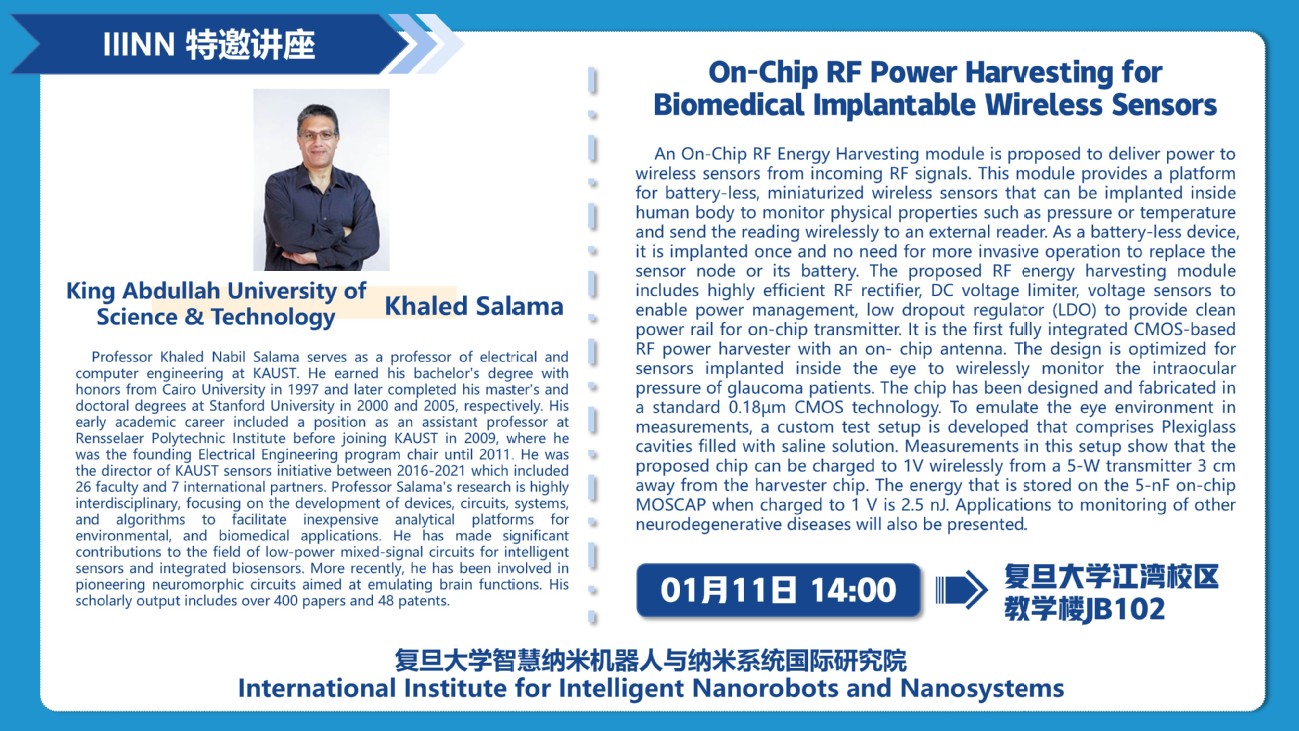
讲座简介:
An On-Chip RF Energy Harvesting module is proposed to deliver power to wireless sensors from incoming RF signals. This module provides a platform for battery-less, miniaturized wireless sensors that can be implanted inside human body to monitor physical properties such as pressure or temperature and send the reading wirelessly to an external reader. As a battery-less device, it is implanted once and no need for more invasive operation to replace the sensor node or its battery. The proposed RF energy harvesting module includes highly efficient RF rectifier, DC voltage limiter, voltage sensors to enable power management, low dropout regulator (LDO) to provide clean power rail for on-chip transmitter. It is the first fully integrated CMOS-based RF power harvester with an on- chip antenna. The design is optimized for sensors implanted inside the eye to wirelessly monitor the intraocular pressure of glaucoma patients. The chip has been designed and fabricated in a standard 0.18µm CMOS technology. To emulate the eye environment in measurements, a custom test setup is developed that comprises Plexiglass cavities filled with saline solution. Measurements in this setup show that the proposed chip can be charged to 1V wirelessly from a 5-W transmitter 3 cm away from the harvester chip. The energy that is stored on the 5-nF on-chip MOSCAP when charged to 1 V is 2.5 nJ. Applications to monitoring of other neurodegenerative diseases will also be presented.
主讲人:Khaled Salama
主讲人简介:
Professor Khaled Nabil Salama serves as a professor of electrical and computer engineering at KAUST. He earned his bachelor's degree with honors from Cairo University in 1997 and later completed his master's and doctoral degrees at Stanford University in 2000 and 2005, respectively. His early academic career included a position as an assistant professor at Rensselaer Polytechnic Institute before joining KAUST in 2009, where he was the founding Electrical Engineering program chair until 2011. He was the director of KAUST sensors initiative between 2016-2021 which included 26 faculty and 7 international partners. Professor Salama's research is highly interdisciplinary, focusing on the development of devices, circuits, systems, and algorithms to facilitate inexpensive analytical platforms for environmental, and biomedical applications. He has made significant contributions to the field of low-power mixed-signal circuits for intelligent sensors and integrated biosensors. More recently, he has been involved in pioneering neuromorphic circuits aimed at emulating brain functions. His scholarly output includes over 400 papers and 48 patents.
讲座时间:1月11日 13:30
讲座地点:复旦大学江湾校区教学楼JB102
